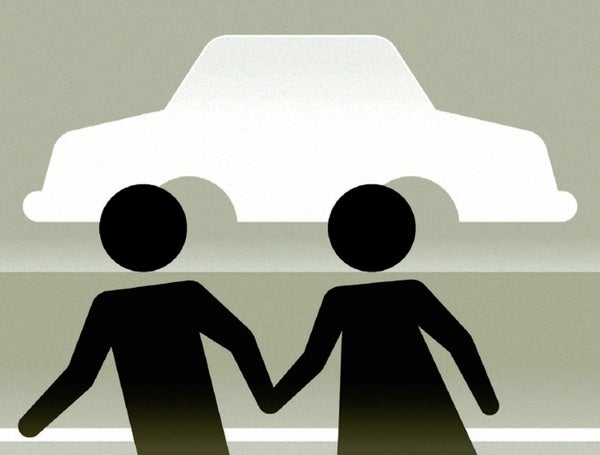Changing Car Culture Can Benefit Our Health and Our Planet
We need to rethink the American love affair with the automobile and redesign cities to reduce car pollution
Anthropologist Daniel Miller has observed that an alien visiting Earth might well suppose that four-wheeled creatures run the planet. These rulers, he notes, are “served by a host of slaves who walk on legs and spend their whole lives serving them.” He meant this as a joke, but the punch line comes at the expense of American car culture. In the U.S., the costs of car dependency keep growing, far above the $12,000-per-year average expense of owning a new one.
Coast-to-coast, the cars and trucks we drive cause about 16 percent of greenhouse gas emissions. They cause significant air pollution, worsening asthma and heart disease rates, and contribute to a nationwide epidemic of obesity. About 69 percent of car trips in the U.S. are two miles or less. Motor vehicle collisions are a leading cause of death in people ages one to 44, the most bitter part of the mayhem accompanying some six million reported accidents per year. Since 2010 the number of pedestrians killed by cars has increased 77 percent, to about 7,500 a year, a growing fraction of all traffic deaths.
America’s car culture—glamorized in advertisements, enforced by zoning laws and enabled by taxpayer subsidies—is a choice that now comes at too high a cost, both for ourselves and for the environment. After a century of its central place in our lives, we need to rethink our world into one not hitched to the automobile.
On supporting science journalism
If you’re enjoying this article, consider supporting our award-winning journalism by subscribing. By purchasing a subscription you are helping to ensure the future of impactful stories about the discoveries and ideas shaping our world today.
Automobile-first ideals dominate in the U.S. Our countryside is carved up by superhighways connecting bedroom suburbs with sprawling cities,…
Read the full article here







